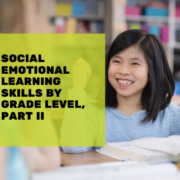What NOT To Do When Students Are Stressed
Seeing as April is National Stress Awareness Month, I thought it would be important to seek the child’s perspective on stress. As educators, we tend to see ourselves somewhat as ambassadors or liaisons between the world of academia and the youths that we are instructing every day. While we may think we know how to help students when they are experiencing overwhelming stress, it is possible that we greatly miss the mark sometimes, too.
In an effort to better understand how children respond to stress, I asked a simple question: What does NOT help you when you are experiencing stress? Here are the answers, “straight from the mouths of babes,” as they say.
Do not tell me that I’m overreacting.
When students were asked what does not help them in moments of extreme stress, many said the same thing, “Don’t tell me to calm down.” This is true for adults, too. Never in the history of calming down has anyone ever calmed down after being told to calm down. Students want to know that their feelings are validated. The initial “it’ll be ok, calm down” response is not only ineffective, but it also discredits what they are feeling in that moment. Instead, sometimes students simply want to know that they’ve been heard.
Do not correct me.
Another unexpected response was the fact that students are not always seeking straight answers or constant perfection. In moments of stress, teachers or parents often want to alleviate the anxiety by removing the stressor or solving the problem for the child. While at times adult interference is absolutely necessary, sometimes it simply is not. When a student is struggling with a difficult concept or task, it is normal that he or she will experience stress. Working through the struggle independently is part of the process of learning how to self-soothe and persevere through the strife.
Leave me alone.
As adults, we know that sometimes, especially when the stress level is at its peak, we simply need some solitude. This is true for students, as well. As much as we may want to comfort or provide advice, students sometimes just want some alone time to decompress. Respect that.
Don’t tell me to manage my time better.
Similarly to tip number one, recommending that students practice time management and prioritization sometimes only adds more stress. Suggestions are great; however, often times, students are truly overbooked. Validating the stress that is attributed to their packed schedules and to-do lists shows that you understand and care about their emotional well-being. Time management is a great skill that comes with practice as children mature. However, sometimes we need to be mindful of the age-group and help students to taper back.
Don’t skip the reward.
No matter the age, students need to know that their hard work and stressful efforts have paid off. Whether large or small successes, it is important to pause at those achievements that didn’t come easily. Reward students with praise when you’ve recognized great effort and perseverance. Skipping the opportunity to praise a job well-done leaves students wondering if they’ve worked hard enough. We all know what it feels like to persist through stressful situations—recognition after the fact never hurts.








